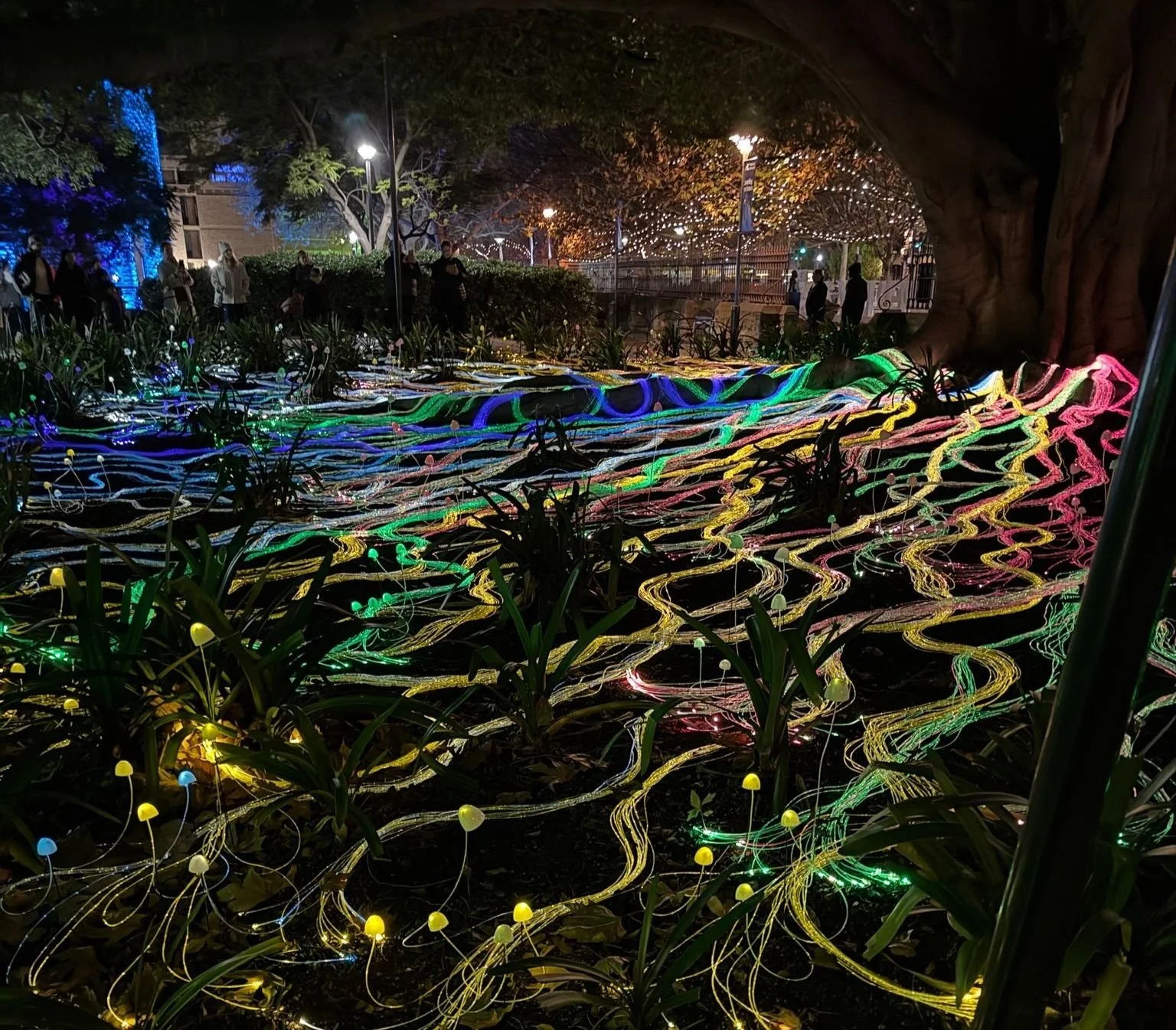REAIE Landscapes of Collaboration: New Possibilities for Education in Complex Times
Jul 10 | Written By Tania Lattanzio and Katherine Williams
Mycelium Network by Custom Fibre Optics: As part of the Illuminate Adelaide City Lights
What a joy it was to be part of the Landscapes of Collaboration: New Possibilities for Education in Complex Times conference, hosted by the Reggio Emilia Australia Information Exchange (REAIE).
These are indeed complex times in education and we are all feeling this in different ways in our different contexts all over the world. Being surrounded by educators so deeply committed to honouring the rights, voices, and potential of children was humbling, inspiring and hopeful. A particular highlight was listening to the powerful words of Consuelo Damasi, atelierista, and Elena Maccaferri, pedagogista, from Reggio Children in Reggio Emilia, so beautifully and respectfully translated by Jane McCall.
This experience served as a powerful reminder of the importance of pausing to reflect, not only on what we do, but on why and how we do it. In the spirit of the Reggio Emilia philosophy, reflection is not an add-on. It is a way of thinking, a way of being, and a powerful tool for transformation.
In that spirit, we will be co-writing a series of blog posts as a way to reflect, learn, grow, and share this experience with others. We hope to capture the richness of what we encountered and the many proposals we are still sitting with.
To be there listening, connecting, participating and engaging in such meaningful dialogue was a true privilege.
Reflection 1: “Transformation Requires Collaboration” – Consuelo Damasi
“Transformation requires collaboration” not just collaboration in planning, but deep, intentional collaboration grounded in listening, shared responsibility, and a collective commitment to children.
We were reminded that in Reggio Emilia, education is a democratic act. This is not simply about having a voice; it is about ensuring that everyone - children, educators, families, leaders has the right to be heard, to contribute, and to influence the life and learning of the community. When we truly see children as protagonists in their learning, we must also see ourselves as co-constructors in that process.
This requires us to create space for dialogue that invites questioning, reflection, and even disagreement, all within a culture of respect and shared purpose. Consuelo speaks of dialogue as a process of transformation and change that happens not in isolation, but in relationships with each other, with children, with materials, with environments and through ongoing conversations around those relationships. She encourages us to have a “dialogic mindset” which is not bound by thinking in disciplines or our own familiar ways of framing our thinking.
We often speak of “the image of the child,” but this also invites us to reflect on “the image of the adults” and “the image of the school.” If we are genuinely committed to children’s rights and to positioning them as protagonists, we must continually ask:
Are our practices aligned with our beliefs?
Are we making children’s thinking and agency visible?
Are we engaging in shared reflection and pedagogical dialogue?
Are we truly listening to learn from each other and to support each other to be better?
Consuelo reminds us that collaboration is fuelled by participation with relationships at the centre. Through participation and a social constructivist approach we can cultivate shared culture, debate, discussion, empathy and the ability to consider and interrogate other perspectives. Participation is in crisis and our school and learning centre communities can be places of hope and possibility - where participation and democracy is protected, nurtured and grown through a landscape of collaboration. After all, as Consuelo says “School is life, not a preparation for life”.
Katherine Williams and Tania Lattanzio

